A quick Google Search on Saleh Sepas would give one the impression that he is a leader in his field. And it wouldn't be wrong.
The award-winning Afghan playwright and theatre director's boundary-pushing work tackling tough subjects like domestic violence have landed him on panels and headlines and won him grants from various foundations.
Even during the pandemic when movement restrictions shut theatres worldwide, Sepas was still producing and directing innovative arts projects and performances online.
But looming over these achievements is a reality that casts a long shadow - Sepas is an asylum seeker.
Having fled Afghanistan in 2017 after receiving death threats from the Taliban, the father of three is among 2,800 Afghan refugees living in Malaysia who are registered with the United Nations High Commission for Refugees and awaiting resettlement.
However, the UNHCR card in Sepas' pocket affords him little rights or comfort in Malaysia.
As Malaysia is not a signatory to the UN 1951 Refugee Convention, in the eyes of Malaysian law, Sepas is no different than an undocumented migrant, without rights to work or access to public health or education, and therefore exposed to harassment and exploitation.
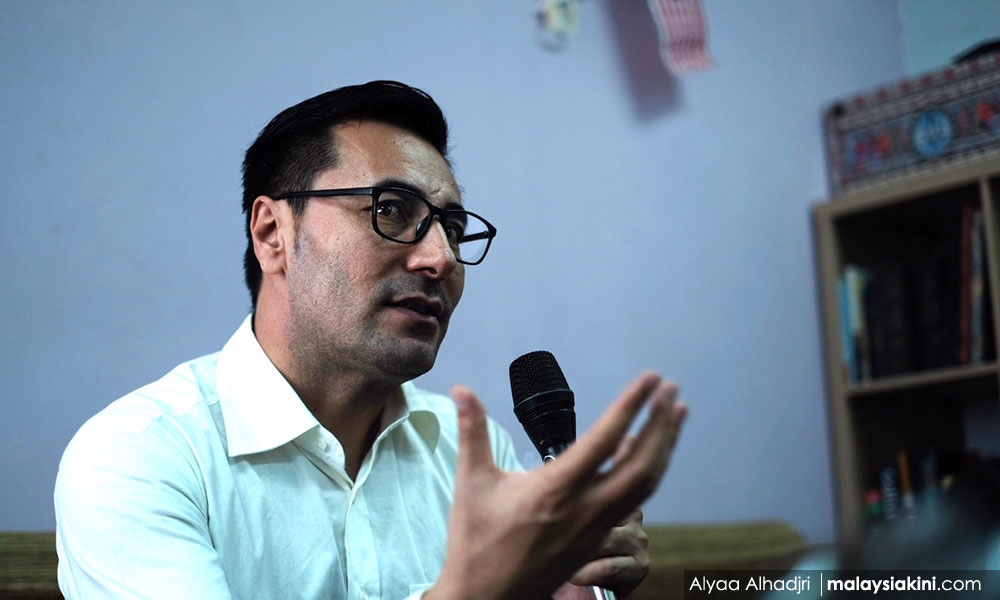
It was in the midst of this stark reality - one he describes as a state of "drifting into perpetual limbo" - that he found himself in the grips of depression.
Sepas said: "The majority of refugees have one or more forms of mental health problems, most of which stem from the vast uncertainty over the rest of our lives.
"This is the bleakness of tomorrow. The frustration of watching our children grow without education and the repression of denied opportunities to make better lives for ourselves."
A mythical swallow that brings change
It was in the depths of depression that Saleh found purpose in starting the Parastoo Theatre group in 2017.
Specialising in a method called "Theatre of the Oppressed" (TO), the group does not serve merely to entertain.
For Sepas and the group members, who are all refugees, it is a form of therapy, keeping them anchored as they face life in the sea of uncertainty.
"I thought I should change my life, and the Parastoo was a mythological swallow bird that brings change. I want to bring change in community development and advocate for education for refugee children.
"The theatre taught them to lift themselves out of their shells and build their confidence," said Sepas, who had first used the TO method in Kabul when working with women and children affected by war.
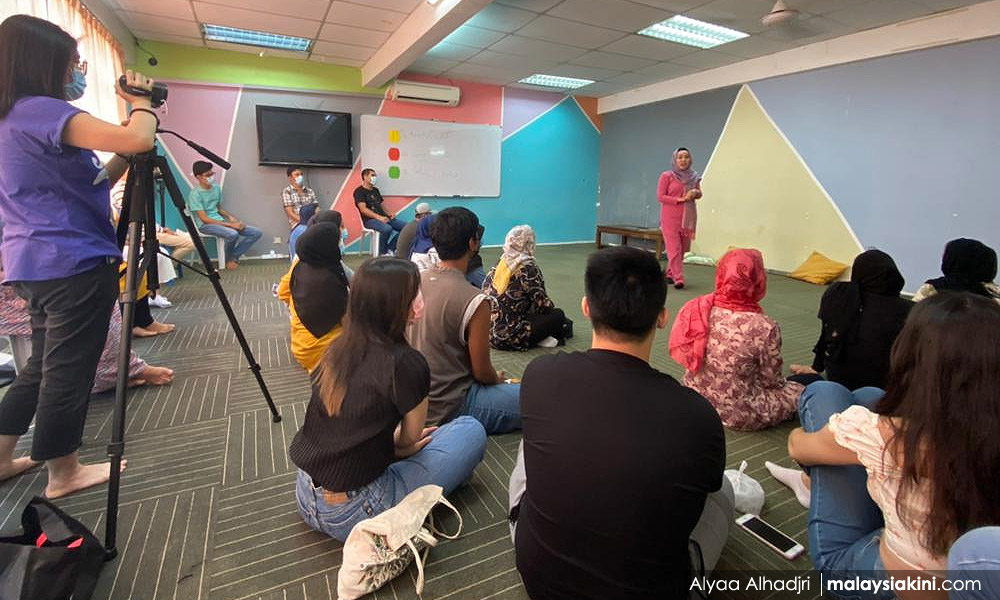
TO is a type of theatre which aims to bring light to systemic exploitation and oppression by allowing spectators to become actors.
Employing this method helps Parastoo raise awareness among Malaysians about the living experiences of refugees.
The group's second play, "Screaming in Silence", which deals with child marriage, took to the stage in 2018.
It went on tour in Penang and later in Kuala Lumpur. The play was staged for five consecutive years, playing to more than 5,000 people.
More recently, Sepas collaborated with established Malaysian theatre group The Instant Café Theatre Company to write and direct a 90-minute play exploring gender, refugee and human rights, titled "And Then Comes Spring".
"Working with Instant Café Theatre is a huge recognition of our work and their trust in our talents," he said.
Combating xenophobia and ignorance
Taking the approach of documentary theatre, Sepas' plays are based on real events.
"But I have to strike a balance between revealing the pain in the lives of refugees and lifting just the right amount of gloom away from the realities of living in an asylum country like Malaysia."
Despite more than 180,000 refugees and asylum seekers registered with UNHCR in Malaysia, awareness about refugees is poor among Malaysians, Sepas said.
"Most locals are unaware of our limited rights, but if they know, they will support us.
"The level of xenophobia is very bad among locals, and if we don't do anything about creating an awareness of our circumstances, we are supporting this rhetoric," he expressed.
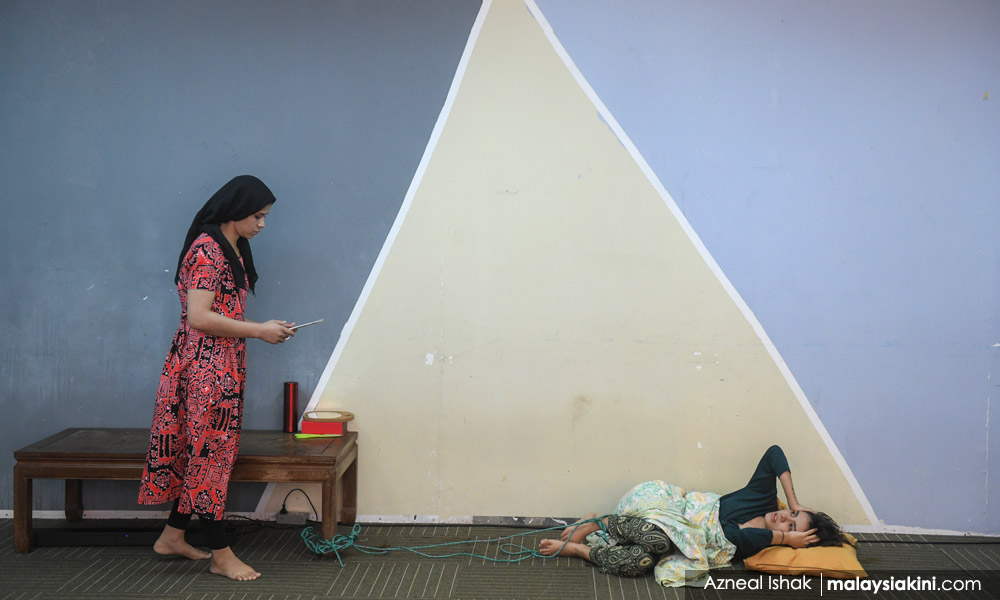
His work, which involves inviting the audience onto the stage to perform solutions for the issues presented by the actors, attempts to bridge this gap.
"Our public performances are all for local audiences like Universiti Malaya, the Bar Council and sometimes large audiences such as the 300-strong student population at the Stella Maris private school.
"So, we are receiving solutions from the likes of lawyers, professors, students and civil societies, each varying in reflection of the type of audience and very participatory," he said.
Apart from actors, Sepas applied his methods to help numerous refugee communities through small workshops.
In 2019 alone, Sepas held numerous TO workshops in Kuala Lumpur for up to 100 refugees from Pakistan, Yemen, Somalia, Syria, Iran and Afghanistan in mixed nationality sessions.
"The methodology that I apply is very powerful and most of it is through games which weave self-reflection into extroverted games.
"Through games, I start the healing and I motivate them," he said, adding that the sessions held in Kuala Lumpur saw refugee participants from Pakistan, Yemen, Somalia, Syria, Iran and Afghans.
'Any country that gives me rights'
Among those who have worked with Parastoo is Lutf, a 30-year-old refugee who is also a mother of three children aged between two to eight years old.
About a third of refugees and asylum seekers in Malaysia are women, and at least 46,000 are children.
As refugees do not have the right to employment, many, like Luft's husband, have no choice but to take on low paying informal work to survive.
Living off her husband's meagre earnings, Luft (not her real name) said they are unable to meet their children's medical needs.
The anxiety over the uncertainty of resettlement while fighting for her children's health led Luft to contemplate suicide.
"When it gets unbearable, I shut the door and cry," she said.
Working with Parastoo, she said, has helped her to cope.
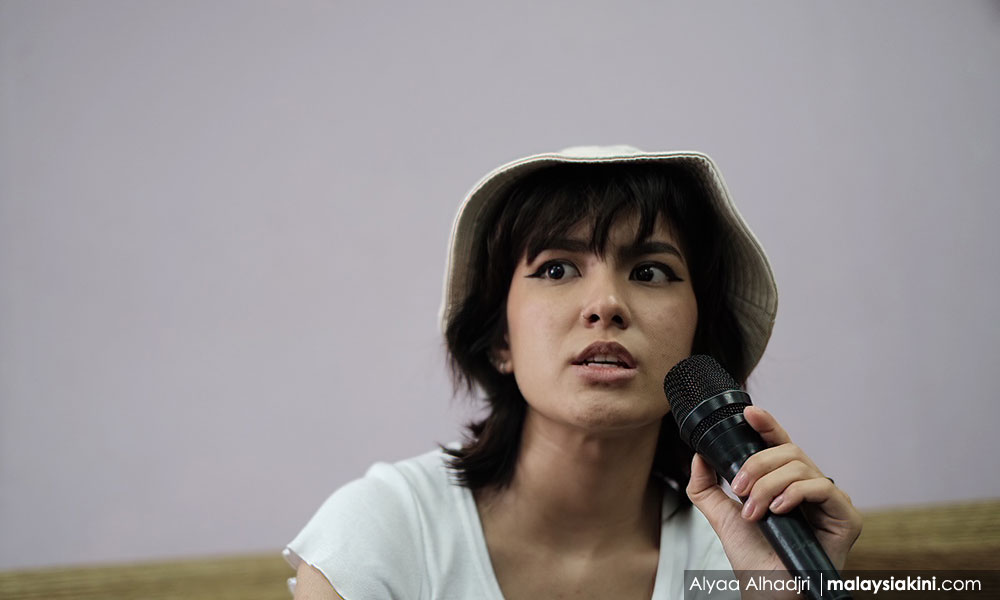
Farzana, 19, being part of Parastoo for two years, said this has helped her develop confidence - something she also sees among her fellow cast members.
"When we invite them to come and perform, they feel powerful that they have a voice," said Farzana, who has also survived domestic violence.
Today, she is a stage veteran and counts herself a human rights activist, appearing in more than 30 performances and other events.
"The stories that we tell are something that every human faces, but refugees (face these issues) more than ordinary locals."
Before arriving, Farzana said, her sister and herself had envisioned pursuing their studies in Malaysia and attending college. But this was unattainable because of their refugee status.
She added: "Now, I don't want to be known as a refugee. It makes people uncomfortable. It makes things weird.
"People don't understand that we are ordinary human beings who come from difficult circumstances."
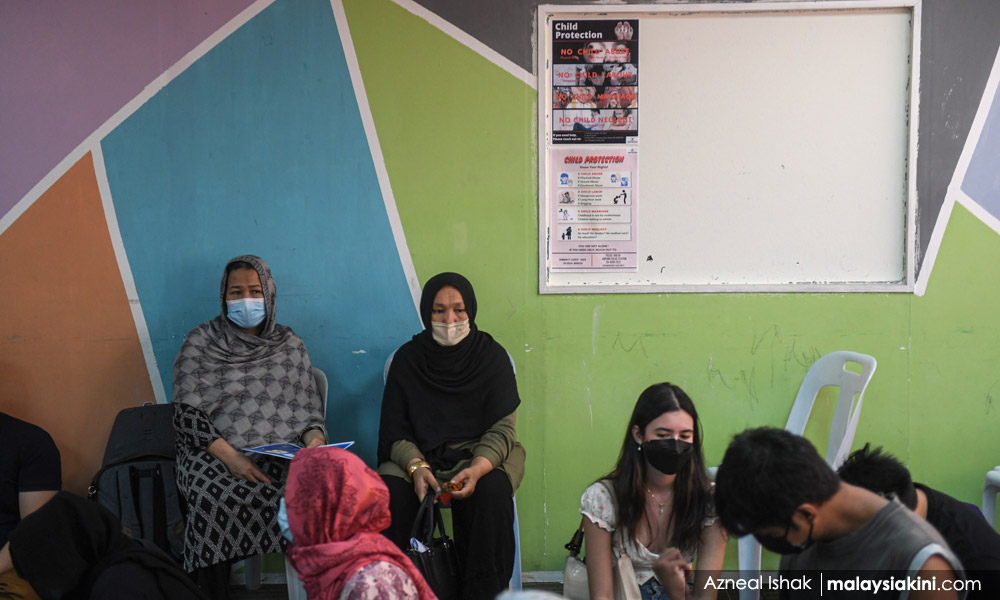
Even though Sepas has found success in his work as and for refugees, and despite his ambitions for Parastoo to reach greater heights, he looks forward to leaving Malaysia and being resettled.
"I lost my rights. I need my human rights.
"So, when the time comes, and I get word of my resettlement, I will leave, but I know I am leaving it in the capable hands of other Parastoo members while I write for them from wherever I settle.
"Any country that gives me rights, that will be my country," he said.
Malaysiakini in collaboration with Tempo captures the artistic expressions of refugees braving uncertainties of life in Malaysia. This project is supported by Japan's Sasakawa Foundation. - Mkini




No comments:
Post a Comment
Note: Only a member of this blog may post a comment.